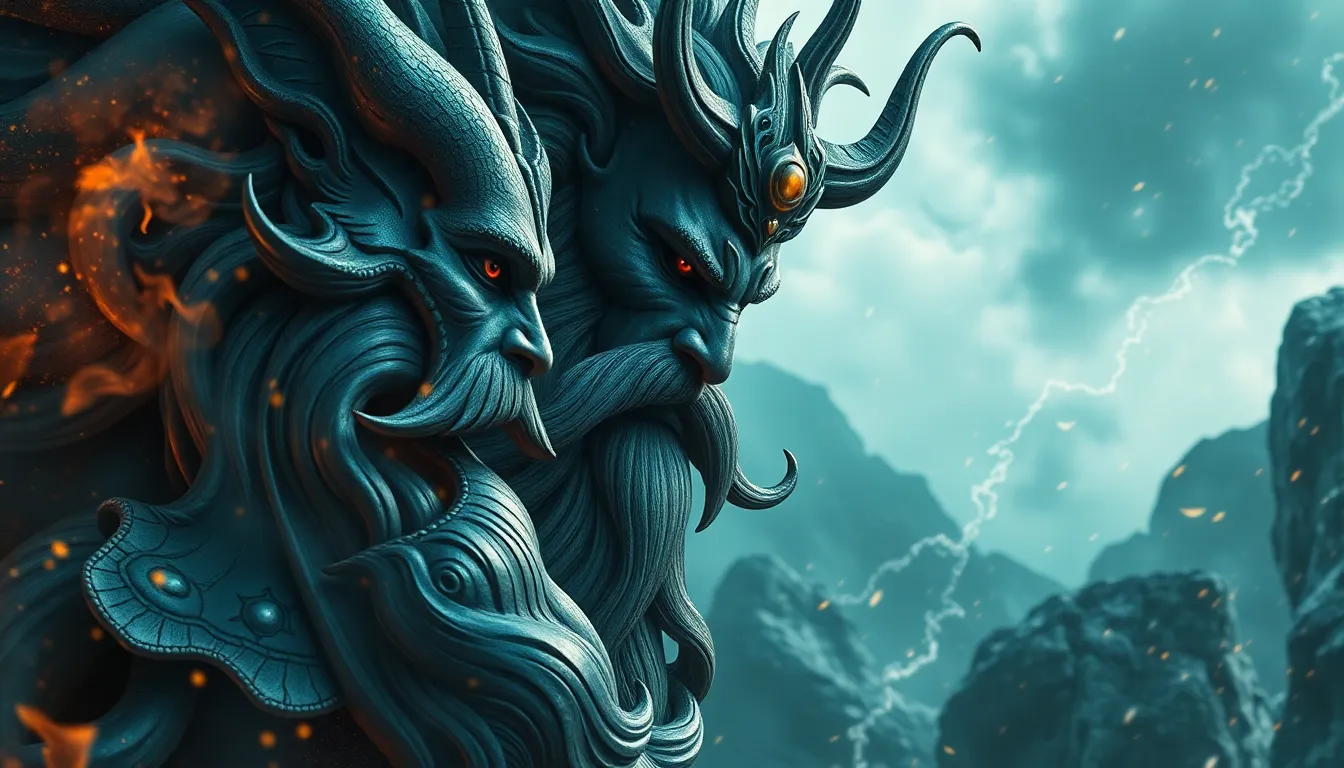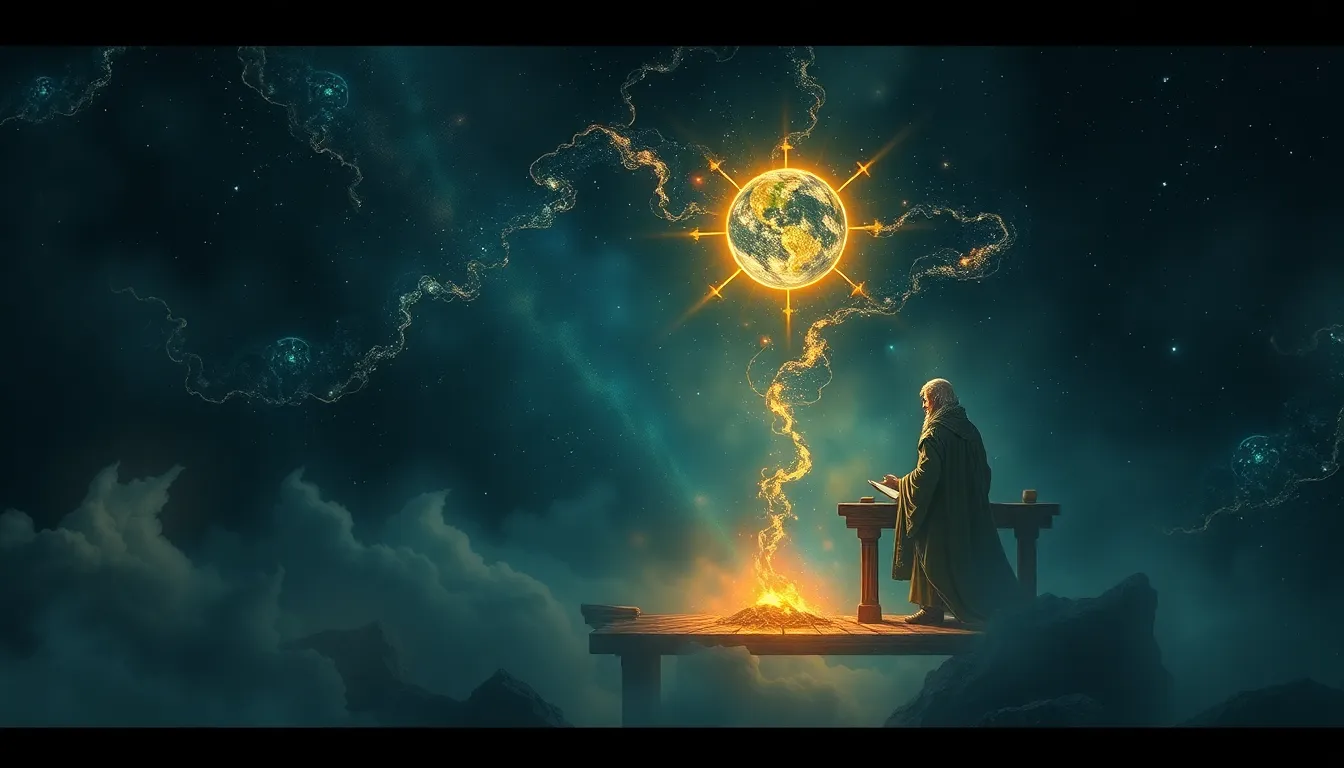Discover the Myths Behind Your Favorite Cultural Heroes
I. Introduction
Cultural heroes are individuals celebrated for their significant contributions to society, embodying virtues that inspire admiration and respect. These figures often serve as symbols of hope, resilience, and moral integrity, influencing generations and shaping cultural narratives.
The importance of cultural heroes in society cannot be overstated; they provide role models, unite communities, and offer a sense of identity. However, the stories surrounding these heroes often come with embellishments and myths that can distort the truth about their lives and achievements.
This article will explore the myths surrounding cultural heroes, examining their origins, the difference between myth and reality, and their portrayal across various media.
II. The Origin of Cultural Heroes
The historical context of cultural heroes reveals how societies have celebrated remarkable individuals throughout time. Heroes often emerge during significant events, such as wars, revolutions, or social movements, where their actions resonate with the collective consciousness.
Cultural significance varies across societies, yet the essence of heroism remains universal. From ancient civilizations to modern times, heroes provide inspiration, often representing the ideals and values of their people.
The evolution of the hero archetype reflects changing societal norms. While early heroes might have been warriors or demigods, contemporary heroes include activists, scientists, and everyday individuals making a difference.
III. Myths Versus Reality: The Life of a Hero
Many historical accounts of cultural heroes contain embellishments that enhance their legendary status. These narratives often serve to inspire rather than provide an accurate depiction of their lives.
- George Washington: Often depicted as a flawless leader, Washington’s life included controversies and personal struggles that are frequently overlooked.
- Joan of Arc: Celebrated for her bravery, Joan’s story is filled with myths that elevate her to a saintly status, sometimes overshadowing her complex motivations and the political climate of her time.
The role of storytelling in shaping perceptions of heroes is crucial. Tales of valor, sacrifice, and moral integrity are often passed down through generations, creating a legacy that may stray far from the truth.
IV. Cultural Heroes in Literature and Folklore
Mythical heroes in literature, such as Hercules and King Arthur, illustrate the timeless nature of heroism. These characters often embody traits admired in society, such as courage, strength, and wisdom.
The influence of folklore on cultural identity is profound. Stories of local heroes can instill pride and preserve cultural heritage, offering a sense of belonging and continuity.
Modern interpretations of heroism are often inspired by these myths, reflecting contemporary values and challenges. The stories are adapted to resonate with current audiences while retaining their core themes of heroism and sacrifice.
V. The Media’s Role in Hero Mythology
The impact of film and television on hero narratives is significant. The portrayal of heroes in popular media shapes public perception and understanding of what it means to be a hero.
- Marvel Superheroes: Characters like Spider-Man and Black Panther have redefined heroism for a new generation, emphasizing diversity and moral complexity.
- Documentaries: Films that recount the true stories of historical figures can sometimes reveal the person behind the myth, providing a more nuanced view.
There is a notable difference between comic book heroes and real-life figures. While comic heroes often possess superhuman abilities and operate in fantastical realms, real-life heroes confront tangible challenges and moral dilemmas, which can lead to a more profound understanding of heroism.
VI. Gender and Cultural Heroes
Female cultural heroes have often been overlooked or misrepresented in history and mythology. Figures such as Rosa Parks and Frida Kahlo challenge traditional gender roles and demonstrate the power of women in effecting change.
The portrayal of gender in heroic narratives has evolved, with modern stories increasingly highlighting female empowerment and the complexities of women’s experiences.
Contemporary movements, such as feminism, are reshaping perceptions of heroism, advocating for recognition of women who have fought for justice and equality.
VII. Cultural Heroes Across Different Regions
Hero myths vary significantly across cultures, illustrating diverse values and beliefs. For instance:
- Native American Heroes</: Figures like Crazy Horse symbolize resistance and the fight for freedom.
- African Heroes: Leaders like Nelson Mandela represent courage and the struggle against oppression.
- Asian Heroes: Figures such as Sun Tzu embody wisdom and strategic thinking.
Despite these differences, universal themes in hero narratives, such as sacrifice, courage, and the pursuit of justice, connect cultures worldwide. Globalization influences the understanding of cultural heroes, blending narratives and creating new interpretations of heroism.
VIII. The Psychological Impact of Hero Worship
Societies create and cling to heroes for various reasons. Heroes provide hope in times of crisis, serving as symbols of resilience and strength.
The effects of hero myths on individual identity can be profound. They can inspire individuals to embody heroic qualities, influencing personal values and aspirations. However, idealizing cultural figures can lead to unrealistic expectations and disillusionment.
IX. Deconstructing Hero Myths in Contemporary Society
The rise of anti-heroes and flawed characters reflects a shift in societal attitudes toward heroism. Characters like Walter White from “Breaking Bad” challenge traditional notions of good and evil, highlighting the complexity of human nature.
Social media is changing the narrative around heroes, allowing for more diverse voices and stories to emerge. This democratization of storytelling encourages critical thinking about who is celebrated as a hero.
Understanding hero myths requires a nuanced approach, recognizing that heroes are often products of their time and circumstances.
X. Conclusion
In conclusion, the myths surrounding cultural heroes reveal much about societal values and aspirations. By examining the origins, portrayals, and impacts of these figures, we gain insight into what it means to be a hero in different contexts. The ongoing relevance of cultural heroes continues to inspire and shape our understanding of heroism in an ever-evolving world.



